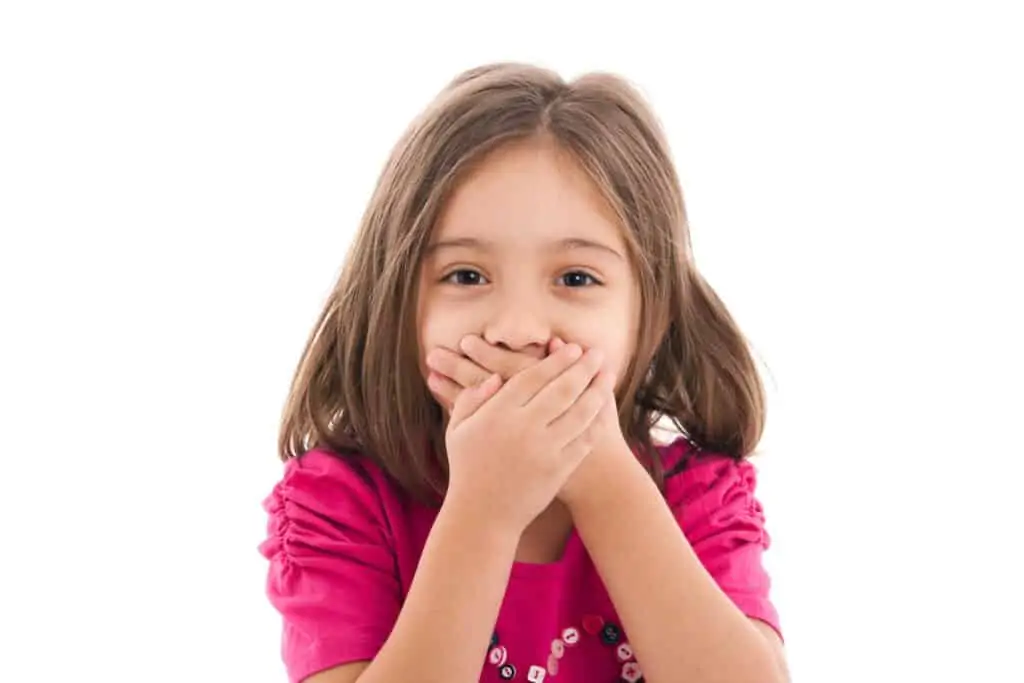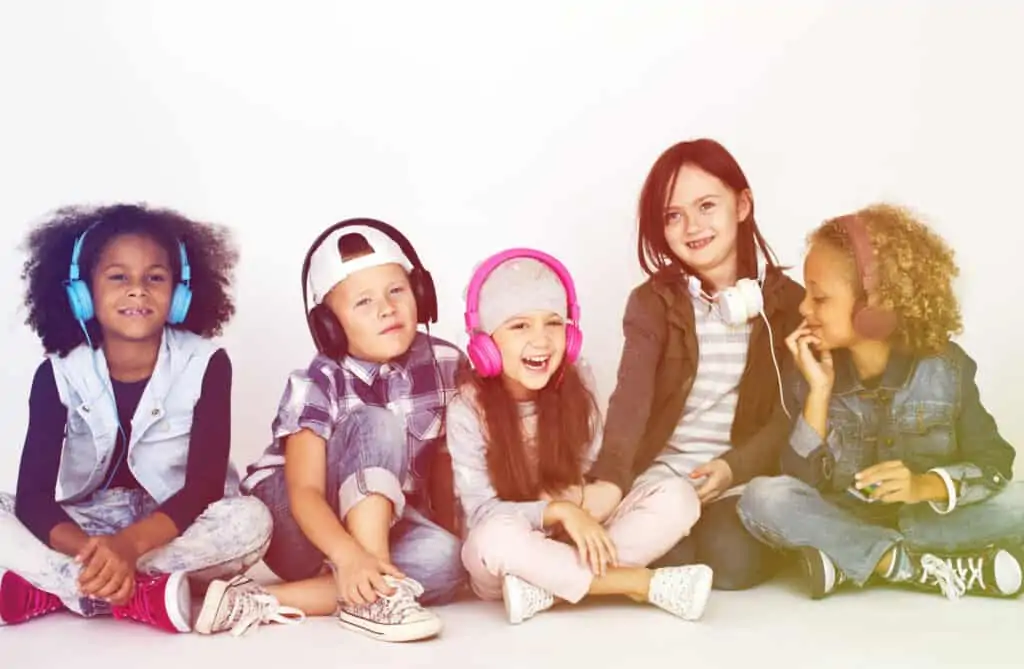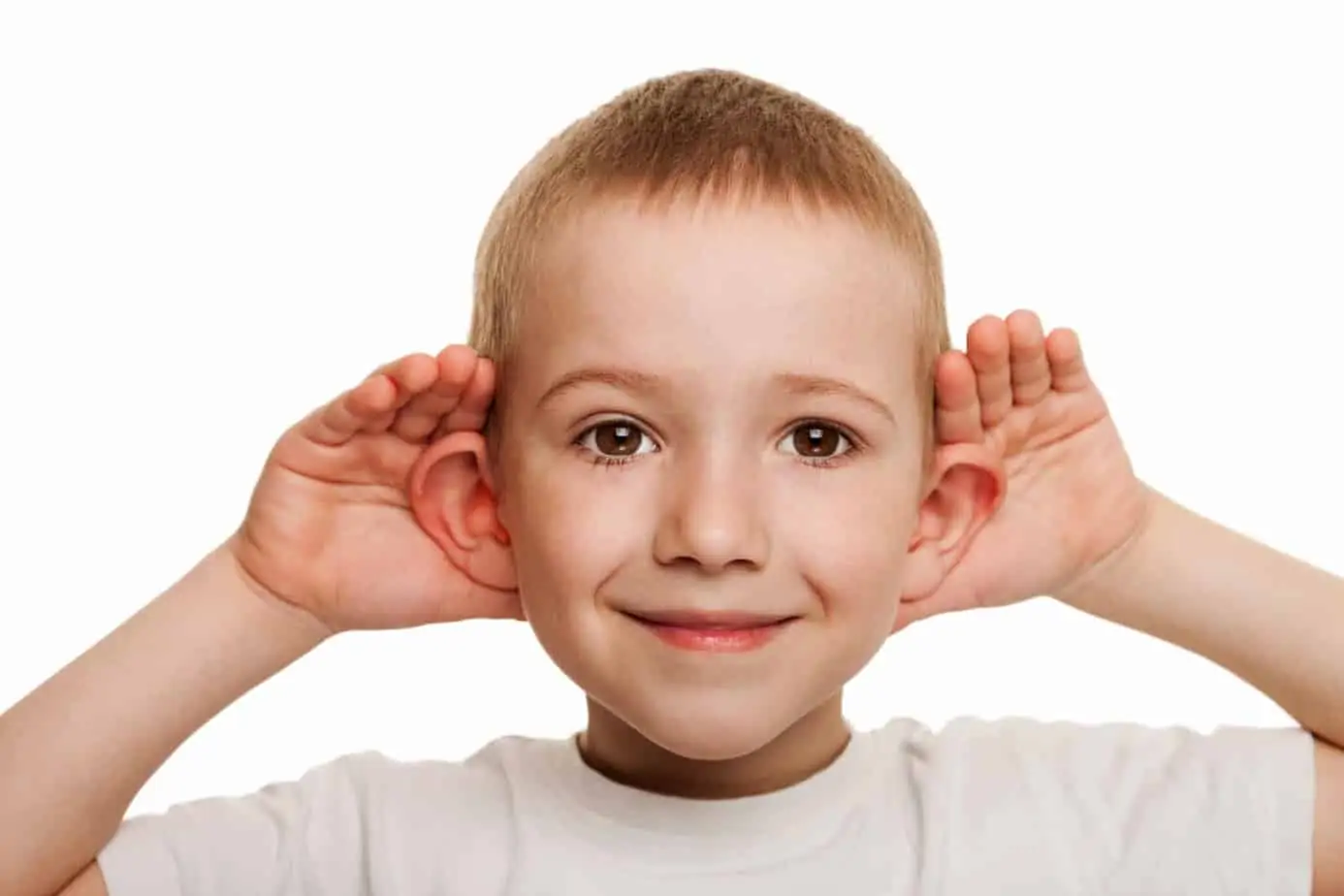Inside this Post: If your child is obsessed with toilet references and potty talk, buckle up because this is not an overnight phase. Tips to help you endure potty talk. The best way to handle potty talk? A good sense of humor, and these tips will help too!

What’s up with the Potty Talk?
At a certain age, kids begin to experiment with potty talk and foul language from time to time.
Kids easily become fascinated with the world of potty talk, or more colorful language as they grow and expand their social awareness.
It’s funny for toddlers who finally get the hang of using the bathroom suddenly become obsessed with potty talk or school-age kids learning to spell, giggle at the word “butt” when you read a book about butterflies.
What gives?
“Kids this age have a budding sense of humor, and they know they’ll get a response from potty language,” explains Parents advisor Michele Borba, Ed.D., author of The Big Book of Parenting Solutions: 101 Answers to Your Everyday Challenges and Wildest Worries.
“Once other kids start giggling when a child says these sorts of things, it reinforces the behavior.”
Traditional disciplinary methods like time-outs or taking a toy away don’t work well for these situations, but here’s some solutions to curb potty talking kids.
8 Solutions to Help Curb Potty Talk and Swearing
1. Give Plenty of Positive Attention & Reinforcement
This has been said a million times, but kids act out for attention whether it’s your praise or your angry reaction to potty talk.
Make sure you’re giving your children plenty of positive attention and positive reinforcement so their bucket is full and they don’t go seeking out attention in other ways.
2. Put on Your P-P-P-Poker Face
While you can’t control a group of little ones who burst out laughing about a fart joke at the dinner table, you can control your own.
If you laugh or get a rise out of the comment, know that kids are fine-tuned to gauge your reaction.
If they see that you are giving their use of potty talk or foul language attention and will want to seek it out again (and again.)
“If you keep things matter-of- fact and don’t laugh, show embarrassment, or start to get angry, the potty talk may lose its appeal,” says William Warzak, Ph.D., professor of psychology in the pediatrics department at the University of Nebraska Medical Center, in Omaha.
Try turning around and walk away and don’t give your child a reaction.
3. Use Proper Names for Body Parts
When you teach children proper names for body parts, you remove the excitement of using those words as they get older.
Plus, it’s important to teach the real names of private parts and not use words like “booty” or slang, for body safety reasons.
4. Set Rules Around Potty Talk and Cursing
Be very clear about what language is appropriate, and inappropriate to use at home, school, with family and friends.
Reinforce that while your kids may hear other kids use these words at school or on the playground, it doesn’t make it OK and they are not to repeat them.
A firm, yet calm voice will do the trick to back up your rules.
5. Put Yourself in Their Shoes Method
Younger kids often use potty talk to get a rise out of siblings and peers.
They want to have fun and joke around, not realizing that their words can hurt other people’s feelings.
Ask your child to put themselves in the other person’s shoes if they’ve said something hurtful or inappropriate. Use empathy to help them see their actions from other person’s perspective and help curb the behavior.
“How would it feel if your friend called you a butthead?”
Flip the switch and role play with your child to help them see how potty talk and bad words can be hurtful when used this way.
6. Watch Your Own Language & What’s Used on TV, Devices, etc.
Kids learn from their parents from observation, and less from being told what to do.
How you demonstrate speaking respectfully to your partner, your kids, friends and peers, models what’s appropriate language for children to use as well.
If you curse, kids won’t understand why it isn’t okay for them to use.
Kids are keenly sensitive to double standards and if Mommy and Daddy use these words, they’ll believe it’s okay for them to as well.
7. Looking for Laughs
Kids who use potty talk jokingly and to get a rise out of others, might do best by teaching them how to use real jokes.
Grab a book of jokes for kids or repeat your favorite age-appropriate jokes for kids so they can learn the joke by heart and repeat it to their friends.
8. Figure Out What’s Behind the Foul Language
Older kids who purposefully swear, it’s important to try to understand where it’s coming from to help them stop.
- Are they trying to act cool or fit in at school?
- Do they struggle to express themselves in appropriate ways or whenthey’re angry?
Do they need help understanding their emotions? Try validating their feelings once they’ve calmed down.
One More Note About Frequent Potty Talk
When there’s an increased use of swearing, it’s time to recognize that the action isn’t about using a bad word, but something more.
Is there a problem expressing anger, power struggle or using it as revenge against a parent or both parents?
It’s no longer innocent, but time to dig into what’s really behind the behavior to squash it.
Need a little extra handling your child’s big emotions? Here’s a FREE Parenting Course to help you both turn things around.
Related Children’s Behavior Articles:
- How to Discipline Kids Without Yelling: 7 Tools to Help
- How to Use Time Outs and Correct Misbehavior Without Breaking Your Child’s Spirit
- Handling Toddler Tantrums: Big Emotions & Helping Your Toddler Feel Heard
- Parents: 5 Steps to Teach Kids How to Manage Big Emotions (Free Printable)
- Helping Kids with Transitions: Switching Gears without Tears
- How to Stay Calm When Your Child Misbehaves
Want even more?
Shop All Parenting Resources
Shop all of our parenting resources from self-regulation tools and managing big emotions to building self esteem and confidence. There are resources for all seasons of life!







